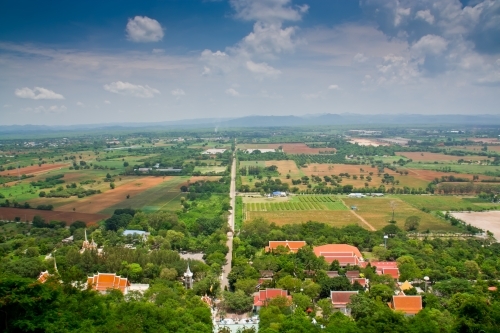Written by Maria Kollarova

This week our focus is on agriculture, our food and farmers’ livelihoods.
The Russian embargo of agricultural products has certainly become a hot topic in the area since 7 August, when the Russian government adopted a list of agricultural imports to be banned. It is really too early to say what the economic impact of these restrictions will be, as agricultural markets are subject to fluctuation. However, the trade restrictions put serious pressure on the EU agriculture and food sector due to the loss of a significant commercial market. The reformed Common Agricultural Policy has been equipped with an inventory of measures to ensure EU solidarity in cases like this. Our keysource on the Russian measures against European Union agricultural products compiles the background to the crisis, summarises measures taken by the EU and stakeholder and Member State views, and provides access to relevant press articles.
2014 was designated International Year of Family Farming by the UN General Assembly, promoted and supported by the World Food Forum, civil society and farmers’ organisations. The objective is to raise the profile of family farming by focusing attention on its role in alleviating hunger and poverty, providing food security and improving livelihoods, whilst also protecting the environment and biodiversity.
A huge 43% of the global active population is employed in agriculture. This percentage increases to 53% in developing countries. In sub-Saharan Africa, 80% of farms are family-owned and worked. Globally, 1500 million homes depend on farming to live. In developing countries 3 of every 4 poor people live in rural areas and depend on agriculture for their subsistence. In Europe family farming is the most common operational farming model. The majority of the EU’s 12 million farms are family farms and nearly 78 % of agricultural workers are farm owners or their family members. You can read more in our file on the 2014 International Year of Family Farming.
It may be a surprise that agroindustrial scale farms do not provide the majority of the world’s food: Small Farms provide 70%, as you can see from our infographic. They also play a significant role in supporting rural employment and contribute to territorial development. Our keysource on the Future of small farms points out how vital their role is in the production of local specialist products and providing important social, cultural and environmental services.

An important improvement for the sector is to enable group certification for small farmers in Europe working in organic farming. The current legislative framework provides a basis for organic production and consumer confidence, and its implementation potential has not yet been fully exploited. The Organic production and labelling of organic products has been subject to a European Commission Impact Assessment accompanying its proposal for a Regulation of the European Parliament and the Council on organic production and labelling of organic products (COM (2014) 180), adopted in March 2014. The EPRS Ex-Ante Impact Assessment Unit provides an initial analysis of the assessment’s strengths and weaknesses.
Rural development is an integral part of the CAP, La politique européenne de développement rural explains how EU policy seeks to ensure rural areas, which count for 77% of EU territory and nearly half the population, have a balanced territorial development. On the other hand, non-rural, Urban and peri-urban agriculture, the cultivation of crops and rearing of animals within and surrounding the boundaries of cities, is an exciting parallel development. Urban agriculture can reflect varying levels of economic and social development. In developed countries it often takes the form of a social movement for sustainable communities, where organic growers form social networks. In the developing countries, food security, nutrition, and income generation are key issues. In either case, more direct access to fresh vegetables, fruits, and meat products through urban agriculture can improve food security and food safety.
This is, of course, only the tip of the haystack when it comes to agriculture and food challenges for the EU. Tackling food waste: The EU’s contribution to a global issue covers the worrying issue of wastefulness in developed society, and Fighting food fraud gives an overview of the EU’s response to scandals which affect all of us in the supermarkets where we shop and on our plates. Lastly, we take a look at the contentious issue of Food versus fuel and Indirect land use change (ILUC) and biofuels in the EU.








Be the first to write a comment.